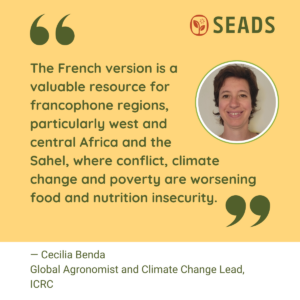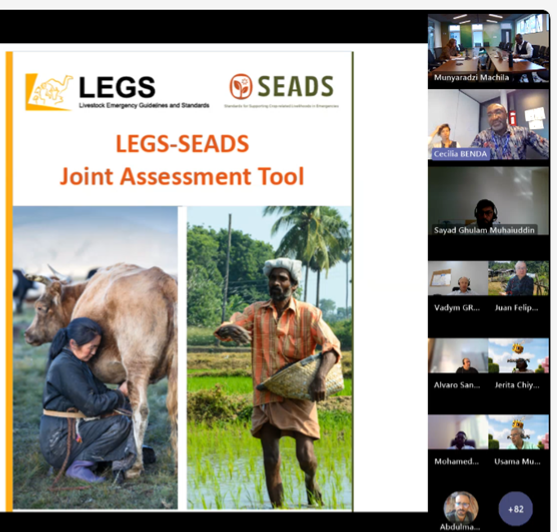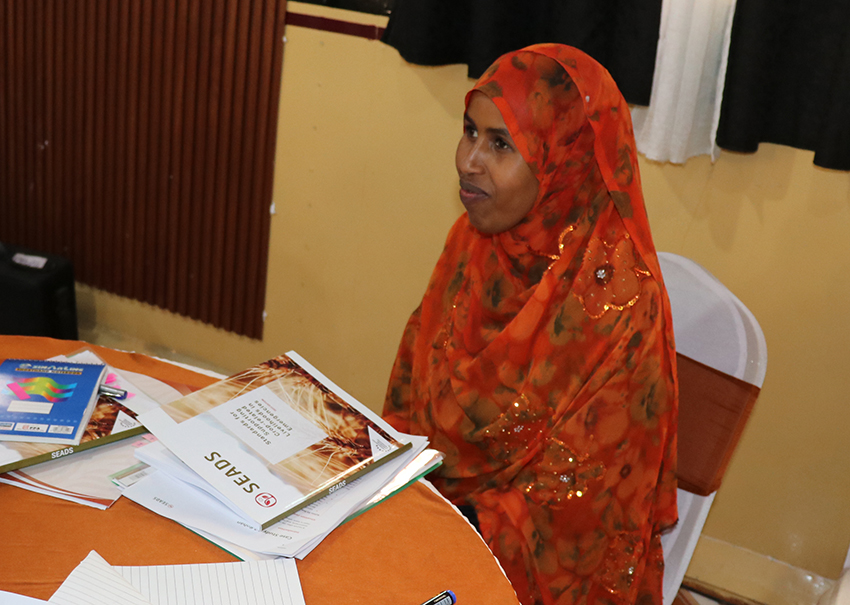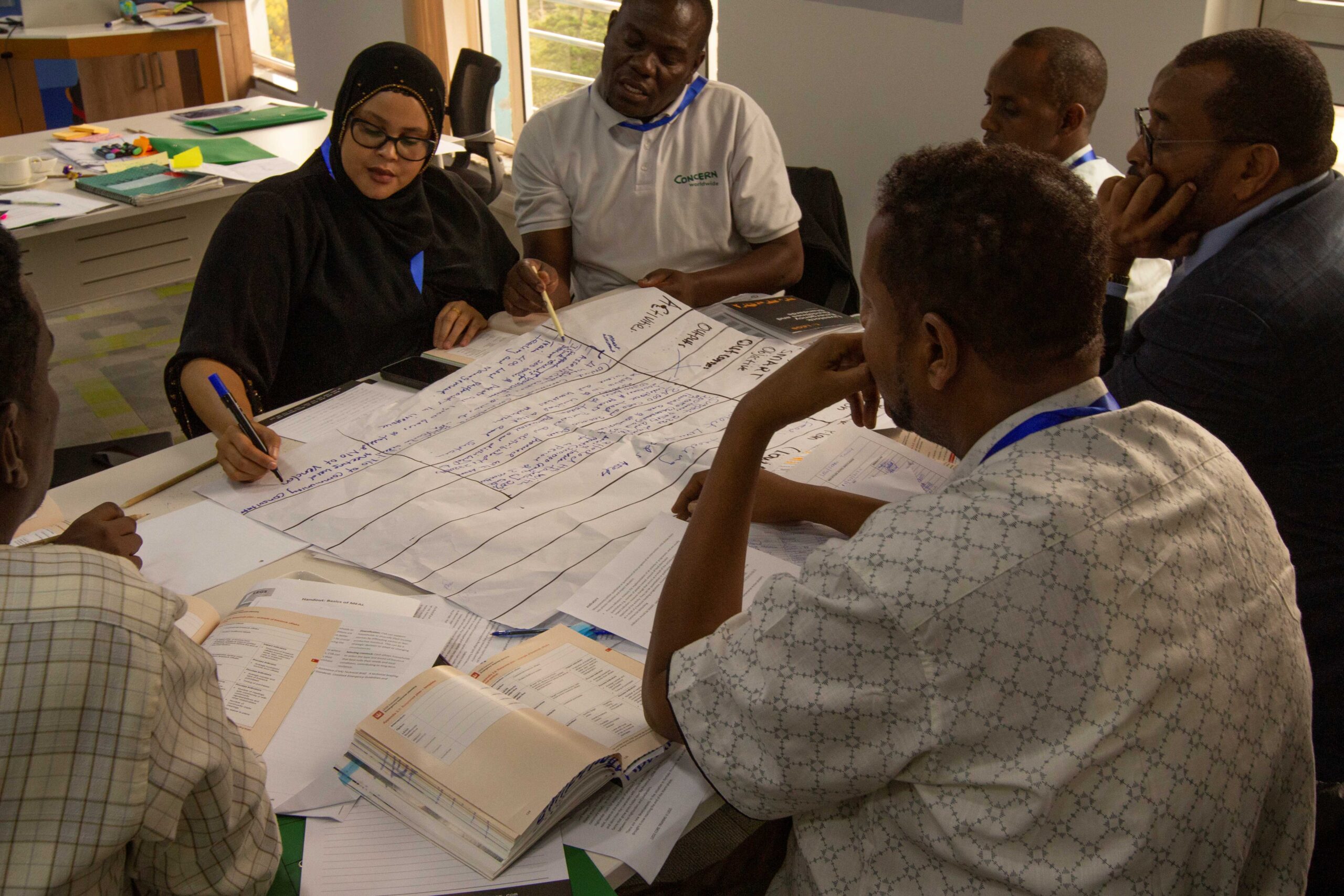In a dynamic and highly anticipated webinar moderated by Henri Maindiaux from the International Committee of the Red Cross (ICRC), SEADS officially launched the French version of its renowned handbook. The event marked a critical moment for advancing agricultural resilience in Francophone Africa and other French-speaking regions grappling with conflict and climate change.
 A vital tool for crisis response
A vital tool for crisis response
The introduction to SEADS was given by Cecilia Benda, an agronomist at ICRC, who outlined the significance of SEADS standards in supporting agricultural livelihoods during crises. “SEADS provides essential guidelines to ensure that agricultural responses in emergencies are practical, coordinated, and sustainable, helping to protect livelihoods before, during, and after crises,” Benda emphasized. Her presentation set the stage for a deeper exploration of how SEADS can be used to improve emergency agricultural responses globally.
Empowering West Africa’s farmers
“The French version of the SEADS Handbook is like a Bible for us,” said Amadou Traore, Regional Technical Advisor at Catholic Relief Services (CRS). “In West Africa, we face droughts, floods, and security crises daily. Now, with the SEADS Handbook in French, we can empower local farmers and technicians to take action and protect livelihoods more effectively.”
Already a cornerstone for emergency interventions worldwide, SEADS is now accessible to more regions in West Africa, including Burkina Faso, Mali, and Niger, where agriculture is critical yet highly vulnerable to climate disasters and conflict. With the French translation, humanitarian actors can make faster, more coordinated decisions that safeguard food security and promote long-term resilience.
Global relevance: From Haiti to Gaza
Jean Ludger Simon, Director of Research and Development at the American University of the Caribbean in Haiti, echoed the urgency of adopting SEADS in disaster-prone regions like Haiti. “Haiti’s vulnerability to natural disasters is undeniable. The earthquakes, hurricanes, and floods we’ve faced have devastated our agricultural communities. SEADS offers us a critical tool to better prepare and respond, protecting the livelihoods of those most affected,” Simon remarked.
The webinar spotlighted Usama Mukhallalati from Gaza, where SEADS has been instrumental in restoring agricultural infrastructure destroyed by conflict. “I’ve been displaced eight times, but I’ve always kept the SEADS Handbook with me,” Mukhallalati shared emotionally. “It represents my hope to restore Gaza’s agriculture one day.” Using SEADS decision-making tools, his team has helped farmers adapt to rising temperatures by rehabilitating greenhouses with climate-resilient techniques.
A call to action for resilience
With the French SEADS Handbook now available, the potential impact of SEADS is poised to expand further. David Traynor from Concern Worldwide underscored the significance for Francophone West Africa, stating, “Having the SEADS Handbook in French is a game-changer. It enables us and our partners to speak the same language—literally and figuratively—when it comes to responding to crises and building resilience in the communities we serve.”
The webinar concluded with a call to action for governments, NGOs, and humanitarian actors to embrace SEADS and utilize its tools to strengthen agricultural resilience in the face of increasing global challenges. As crises intensify, SEADS stands ready to support farmers, build resilience, and ensure agricultural livelihoods survive and thrive even under the most challenging conditions.
“With SEADS, we have the tools to make a real difference—now it’s up to us to use them,” concluded Traore, inspiring participants to take the next steps toward widespread SEADS adoption.
Get your copy of the French SEADS Handbook, watch the SEADS Handbook launch, and view a compilation of the questions and answers.



